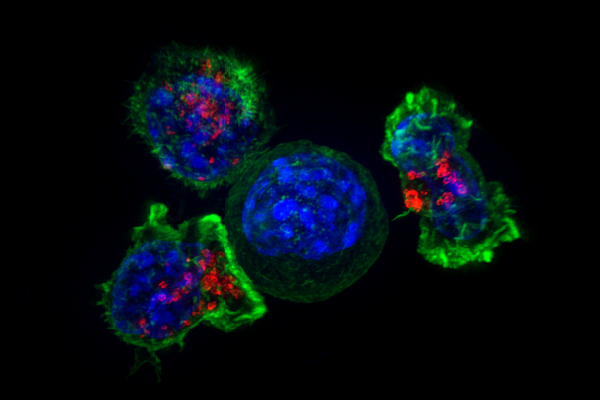Fish Oil Supplements May Not Be Effective for Certain Cancer Patients

New research highlights the importance of genetic factors like ALOX15 in determining the effectiveness of fish oil supplements for cancer prevention. Learn how omega-3 fatty acids interact with enzymes to influence tumor growth.
Recent research suggests that the benefits of fish oil supplements, rich in omega-3 fatty acids EPA and DHA, may not be universal for all cancer patients. While many in the United States, approximately 19 million adults, regularly consume these supplements to promote health and combat chronic diseases, their effectiveness in reducing cancer risk appears to be more complex than previously thought.
A groundbreaking study conducted by researchers from the University of Michigan and the University of Texas MD Anderson Cancer Center has revealed that the enzyme 15-lipoxygenase-1 (ALOX15) plays a crucial role in mediating the anti-cancer effects of EPA and DHA. The study, published in Cellular and Molecular Gastroenterology and Hepatology, indicates that the presence or absence of ALOX15 significantly influences whether fish oil supplementation can suppress colorectal tumor growth.
In animal experiments, mice fed a fish oil-supplemented diet unexpectedly showed increased colon tumor development under inflammation-inducing conditions, particularly in those lacking ALOX15. Interestingly, EPA and DHA are metabolized into resolvins that reduce chronic inflammation—a key factor in cancer development—but this process hinges on the activity of ALOX15.
Further investigations demonstrated that mice with ALOX15 responded better to EPA and DHA, experiencing fewer and smaller tumors, especially when fed EPA-rich diets. In contrast, DHA was less effective in mice without ALOX15, underscoring the importance of this enzyme. This suggests that simply consuming fish oil may not provide the protective effect in individuals lacking sufficient ALOX15 activity.
Professor Imad Shureiqi from the University of Michigan emphasized that not all fish oil supplements are equivalent. It is crucial for consumers and healthcare providers to consider whether an individual’s genetic makeup allows for proper metabolism of omega-3 fatty acids into compounds that prevent inflammation and tumor growth.
While these findings are primarily based on animal models, they underline the potential need for genetic screening of ALOX15 in cancer prevention strategies. The research team is optimistic about developing new therapies that could enhance ALOX15 expression, thereby improving the efficacy of EPA and DHA supplementation in preventing colon cancer. As always, individuals should consult healthcare professionals before starting any dietary supplementation, especially if they have concerns about cancer risk.
Stay Updated with Mia's Feed
Get the latest health & wellness insights delivered straight to your inbox.
Related Articles
Gene-Informed Radiation Therapy Shows Promise for HPV-Positive Throat Cancer Patients
New research demonstrates how tumor genomics can personalize radiation doses for HPV-positive throat cancer, reducing side effects while maintaining high cure rates.
Urgent Call for Global Action to Prevent Future Pandemics Through One Health Approach
Urging global action, health experts emphasize the importance of the One Health approach to prevent future pandemics through coordinated efforts across human, animal, and environmental health sectors.



